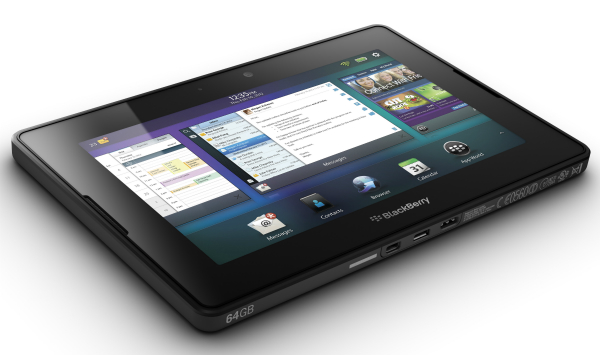RIM is a far more formidable player than either Google or Apple

I like it when I’m right. Whether it’s dispelling the myths surrounding the Windows 7 kernel (I was right), or bursting the bubble of the VDI-everywhere zealots (right again), I enjoy having my predictions come true.
I’m also an operating system technology purist. I believe that a strong OS foundation is what determines whether or not a given platform will succeed over the long haul. This is why I’m convinced that Microsoft will ultimately dominate the enterprise mobile computing space (Windows Phone 8 is based on Windows NT, an OS for which I have tremendous respect). And it’s also why I believe they eventually will share this space not with Apple or Google, but rather the company that everyone likes to write-off: Research in Motion.
Why use iOS Crippleware?
Yes, the grandfather of the smartphone industry is poised to make a comeback. Why? Simple: QNX. Those three letters translate into a huge competitive advantage over any other mobile computing platform. In fact, the only mobile OS that comes close to QNX’s capability is Windows 8. Both are based on robust, scalable, multitasking kernels, and both support the kind of distributed computing magic that will usher in the next generation of killer mobile applications.
iOS? Crippleware from a vendor that seems obsessed with putting training wheels on everything in sight. Android? A sloppy pile of hacks and tweaks (it’s based on Linux, after all) that is being rapidly torn asunder by market fragmentation and competing vendor agendas.
By contrast, QNX is a true, real-time OS. Do a little research and you’ll discover that its reliable, proven kernel has been used in everything from the control circuits for nuclear reactors to the dashboard infotainment systems in tens of thousands of vehicles.
And now RIM owns it, along with The Astonishing Tribe (TAT), Jaycut and a host of other critical acquisitions. In fact, from a pure mobile technology portfolio standpoint, RIM is a far more formidable player than either Google or Apple, and they match up quite well against Microsoft in terms of long-term platform potential.
Those of us who have experience with RIM’s current incarnation of QNX -- whether through the Playbook or the Dev Alpha preview of the upcoming BB10 platform -- get a kick out of the latest Samsung ads slamming Apple’s lack of useful multitasking in iOS. The Playbook’s OS has offered that sort of capability for over a year, and BB10 is based on this same QNX implementation.
QNX runs Circles Around Competitors
Case in point: As I write this on my Playbook, the device is also downloading a torrent (Swarm), playing an MP3 (native music app), synchronizing my email/calendar/contacts (native messaging app), checking for forum messages (TapaTalk), updating my twitter account (Blaq) and copying about a gigabyte of files (ES File Explorer) into the device’s local storage, over WiFi, from a network share on my Windows 7 PC.
Note, also, that three of the above named programs -- Swarm, TapaTalk and ES File Explorer -- are Android apps. QNX is powerful enough to support multiple application runtimes, in this case a parallel copy of the Android Dalvik VM that integrates seamlessly with the overall Playbook UI. Factor in the Playbook’s ability to multitask these apps alongside its own native QNX apps, and you could argue that RIM’s much maligned tablet delivers a “better Android than Android” type of experience.
Bottom Line: My year-old Playbook with QNX is running circles around every competing mobile platform out there, with the possible exception of Windows 8. Which is why I’m convinced that RIM has a bright future in the enterprise: IT appreciates the qualities that QNX brings to the table, namely, scalability, robust multitasking and rock-solid security.
Whether or not these factors will translate into success in the consumer space remains to be seen. Unless we see some very sexy BB10 and Windows Phone 8 devices by this fall, BYOD may yet seal the fates of both RIM and Microsoft alike.
However, with market leader Samsung now pitching “multitasking” as a selling point vs. the competition, the game has suddenly shifted to a trajectory that passes right through the middle of RIM’s QNX wheelhouse.
Here’s hoping they seize the moment and hit one out of the park with BB10.